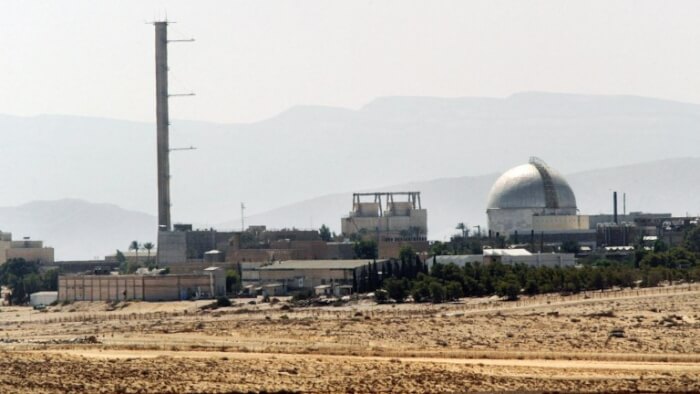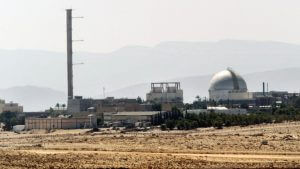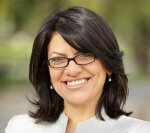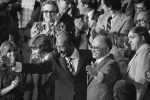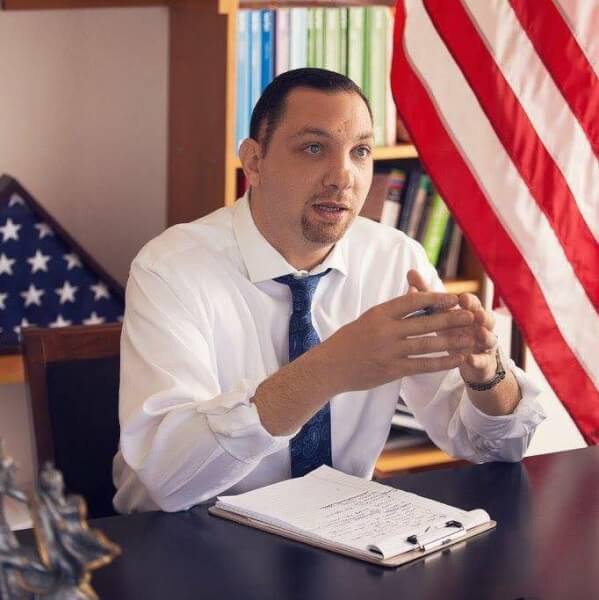Israel’s Nuclear facility at Dimona to be renamed after Shimon Peres
On Sunday Prime Minister Benjamin Netanyahu announced at a cabinet meeting then TWEETED:
I intend to have the Nuclear Research Center-Negev renamed after the late Shimon Peres, who worked to establish this important enterprise
This enterprise is important for Israel’s security for generations. I think that it would be right and proper to rename the center after him
In September 1957, after four years of negotiation, Israel was set to sign an agreement with France for the plutonium reactor which was later installed at Israel’s Nuclear Research Center and WMD facility at Dimona.
All that was needed was the signature of the French foreign minister and his prime minister.
On September 30, Peres met Pierre Guillaumat, the head of France’s Atomic Energy Commission who told Peres the deal could only be finalized with the government’s approval; but the government was teetering on the edge of collapse!
Peres then met with Foreign Minister Christian Pineau, who told Peres he wanted to help but couldn’t because “the Americans would be livid if they found out and might impose sanctions on France that would cripple its own dawning nuclear capacity. Moreover, the agreement could induce the Soviet Union to arm Egypt with nuclear weapons.” [1]
Peres urged Pineau to call the prime minister, Maurice Bourgès-Maunoury but he did not answer.
Peres then convinced Pineau to dictate the terms of their agreement to his secretary and the two of them signed the paper.
All that was needed was Bourgès-Maunoury’s signature, so Peres went to his office and waited.
The hours passed. Afternoon turned to evening. Several rounds of whiskey were sent to the office but as midnight approached Peres realized two things: he would not likely see the prime minister that evening, and the prime minister, who was stuck in parliament, was likely being defeated in a no-confidence vote. [2]
However Peres had secured the prime minister’s oral agreement late that night and at nine the next morning Peres was in Bourgès-Maunoury’s office.
But Bourgès-Maunoury was no longer the prime minister of France!
Despite having NO authority to sign the agreement, Peres convinced him to do so because the agreement was on a piece of paper with the previous day’s date.
On 2 October 2015, Rowan Scarborough wrote for The Washington Times
Before the U.S. had its Edward Snowden, the National Security Agency contractor who disclosed reams of spy secrets to the media, Israel had Mordechai Vanunu. A nuclear research insider, Mr. Vanunu went to The Sunday Times of London in 1986 with never-before-published details and photos on how Israel was making fissile material at its Dimona reactor site.
Some analysts extrapolated from his leaks — including the amount of plutonium Israel produced — that the Jewish state must have hundreds of warheads.
Israel showed how seriously it keeps its nuclear program in darkness. Mossad agents drugged and kidnapped Mr. Vanunu in Italy; he was tried and sentenced to 18 years in prison in 1988. As an ex-con he has been jailed several times for violating parole by granting interviews.
Vanunu was NOT a scientist nor nuclear researcher; only a mid-level technician on the night shift within Israel’s 7-story underground WMD facility at Dimona.
In 2005, Vanunu told me:
I began my studies at Tel Aviv University when I was twenty-one.
I studied physics until the army called me up for thirty days’ reserve service.
When I returned to school, I couldn’t catch up. I worked in a bakery at night and attended class all day.
This was the first time I met Palestinians as human beings.
I began attending political demonstrations inside the university.
It was all about equal human rights and respecting all others.
By the time I was twenty-three, I began working at the Dimona.
It was suppose to be a textile plant, but I was hired for the control room. At the time, I had no idea what it was in control of.
I really didn’t even want the job; I tried to get them not to hire me.
On the application, they asked if I knew any Palestinians. As I had an acquaintance, I said yes, hoping it would disqualify me from employment. They accepted me anyway.
I watched them as closely as they watched me. I began studying philosophy and geography, and read literature…
After a year, I got bored with the routine job at the Dimona and wanted to leave.
I went to Beersheba University and studied economics for a year. I became involved in university politics and in student unions.
I was all about protecting Palestinian students’ rights. I sided with Palestinians more and more, and was invited to help establish a group of Palestinian and Jewish students for peace and justice.
This was also the time I found out that it was dangerous for me to speak the truth. I was being watched, but I continued to express myself anyway.
After six months, I got called in by security at the Dimona, and they asked me, ‘Can you imagine why you are here?’
I answered, ‘My university activity?’
They then questioned me about all my contacts and told me to stop, because I was in danger. I told them I would try, but I knew I would continue on, because it was the right cause and I would not hide my thoughts.
After five months, they called me in again and demanded that I stop my activities. A few months later, the chief security man took me to the Tel Aviv Secret Room, where the Israeli army security officer grilled me.
They told me I could get fifteen years in prison if I didn’t stop my university activities. I left the meeting and walked to a Palestinian bookstore, knowing they were watching me.
That night, I wrote in my diary, ‘1/85. I should have finished this job at Dimona before now. Time to quit.’
I finished the university with a BA in philosophy and geography, and made plans to leave Israel and begin a new life in America.
In August of 1985, I was put on a list of people who should be dismissed from the Dimona. They were laying off 10 percent, but when they told me I was going, I confronted them with ‘Why are you dismissing me? I am a good worker; you are getting rid of me for political reasons, aren’t you?’
The union protected me, and after two months, they told me they were transferring me to a less secure area.
I told them I would stay where I was, or else I would resign. They said, ‘Okay, resign.’ And I did.
I had already shot the two rolls of film. I worked the night shift and had lots of time alone. I found the keys to the restricted areas in the shower room. I left the film in my locker for a few days before taking it out of the Dimona. I knew they were watching me.
I left Israel in January of 1986, and went to search for someone to share my story with.
I didn’t develop the film until six months later.
I was waiting until I found a newspaper that would cover the story.
I met a Canadian author on my way to Greece, but nothing came of it.
I traveled to Athens, Bangkok, and then went to Russia. I was 32 years old in a Moscow hotel, wondering if I should tell my story to the Red Army.
I decided to leave, instead. The reason I had arrived there was that before I left the Dimona, I had checked out the Palestinian Communist Party to see how the communists worked.
I was curious and wondered if they would help me once I left Israel. But when I witnessed the poverty and nothing but military cars everywhere, I decided to get out of there.
I went to the Far East and met some people who had run away from Chernobyl, and I told them about the Dimona. Two weeks later I arrived in Sydney and stayed for six months. I went to St. John Anglican Church and became friends with the people I met there.
I got a job driving a taxi and met a freelance journalist named Gervevo; I told him my story, and he was enthusiastic to help me get it out. He thought I wanted to make money on it, but I told him I just wanted to prevent a nuclear war and contribute to a positive change in the Middle East.
Then I met Peter Hounam….[3]
My first two questions to Mordechai Vanunu regarding his Christian conversion and message to America
On Thursday October 13, Mordechai Vanunu turns 62 and is still waiting for his right to leave Israel.
Learn more about Shimon Peres and Vanunu’s latest trials HERE
- http://www.timesofisrael.com/a-back-dated-deal-with-a-toppled-french-pm-how-peres-secured-israels-nuclear-deterrent/
- IBID
- http://www.eileenfleming.org/index.php/vanunus-freedom-of-speech
- Vanunu still has more nuclear secrets to spill, Israeli court declares - December 29, 2021
- 9/11 and a 20th Reflection of That Day - September 5, 2021
- Mordechai Vanunu: Final Annual Update and this Writers Next Steps - June 19, 2021













